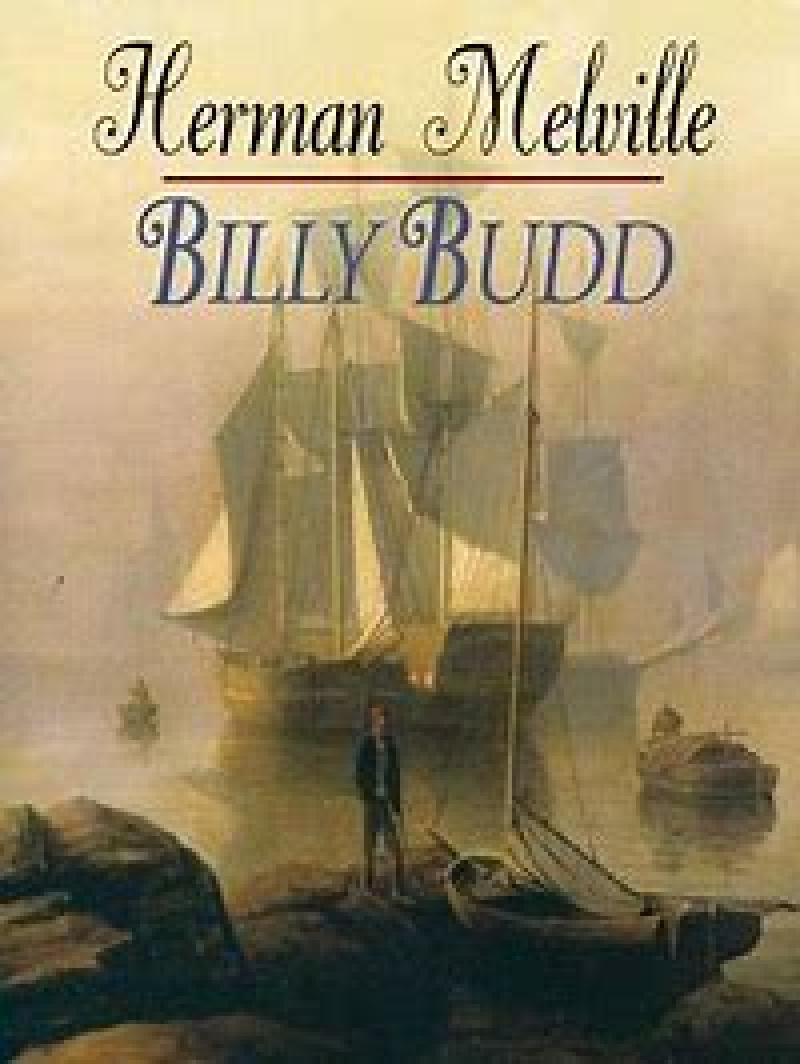Melville's last novel


The Melville classic "Billy Budd" has left a lot for interpretation despite being such an obvious account of good vs evil. I first read this book in high school as I'm sure many have or should have. I was also fortunate to see the 1962 movie, which I thought was so true to the book, considering how much a movie would have to condense from a novel. I'm not trying to review all of the elements of this book. My only interest here is the relationship between three individuals: Edwin Fairfax Vere - Post Captain, Royal Navy (The Captain who wanted to do the right thing, even when it hurt), John Claggart - Master of Arms (sadistic officer, whom everyone feared), and Billy Bud - Merchant Seaman (young, innocent and adherent of truth). The ship is named "Bellipotent" (an English Warship). Billy Budd has been recruited from "The Rights of Man" (named after the book by Thomas Paine) a merchant ship.
Early on there is an incident in which Billy accidentally spills his soup plate in the ship’s dining room. The contents of the pan trickle to the feet of the passing Claggart, who makes an offhand, seemingly lighthearted remark in recognition of the spill. The comment sparks laughter from the ship’s company, and Billy innocently interprets the event as proof of Claggart’s approval. But Claggart is in reality offended by the accident, and finds it indicative of Billy’s contempt for him. Thus begins the process of retribution, which no officer, nor any person given a position of power should engage in. The story continues giving further insight into both men. Without going into too much detail Billy is eventually set up. At the time Britain is at war and Claggart tells the Captain that Billy is trying to incite a mutiny. The Captain calls for Billy to confront Claggart's charges.
When Billy hears them he can't believe what he is hearing. He is so emotional that he can't speak and instead loses his temper and delivers what turns out to be a fatal blow to Claggart. The Captain at first tries to keep the incident quiet, in fear of a real mutiny and calls for his senior officers in order to deliberate. These officers knew both men and are willing to forgive Budd. However the Captain considers the state of war they are now in and the need for discipline. Deep down he knows that Claggart should never have been an officer, but he convinces the other officers to go along with the prescribed sentence of death for Billy Budd.
Vere declares that Billy represents the angel sent by God to strike down Claggart, Vere nevertheless exclaims, “Yet the angel must hang!"
When the hanging takes place the crew is outraged. Being decent men, it was natural. There was that moment when the ship was facing a mutiny, but fate intervened as an enemy warship and patriotism overrode the emotions of the moment.
I think we have some decent people here.
The question is for you.
Was the Captain right in backing Claggart for so long?
Was the Captain right for sentencing Budd to death?




Herman Melville was a Great American novelist, short story writer, and poet of the American Renaissance period.
"God bless Captain Vere!"
Billy Budd's last words. Chapter 26
I haven't read the book or seen the movie, but I did look at the clips.
Budd killed Claggart in what can be described as manslaughter. Since Claggart had been slandering Budd to the Captain the punishment should have been mitigated to the greatest extent allowable. I assume that would not culminate in a hanging.
--------------------------------------
Robert Ryan was a very good actor , but its too bad he couldnt pull off a British accent for this role.
I happen to agree. That may be the best answer to the questions I get today.
I’d never read the book or seen the movie either. Quite the dilemma the story presents. There should have been mitigating circumstances considering the overwhelming abuse that led to it. The captain erred in my opinion in siding with the letter of the law instead of the spirit of it and reason/mercy in that case.
When you think about it, why would a Captain who tried to do the right thing keep somebody like Claggart as an officer?
When one keeps backing such people, all credibility is lost.
Good point.
Anyone in a position of authority must be fair!
That certainly is not the case in today’s America at the federal level or in the media or the internet.
Nope. The law only applies to the common folk.